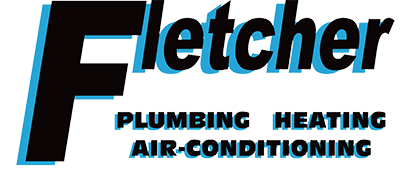Completing the search for your first home is an exhilarating experience. You’re probably juggling a dozen things or more to ensure you’re making the right choice. We believe that gaining insight into your potential new HVAC system is crucial. The property’s HVAC system represents a substantial investment and potential source of long-term costs, so being thorough helps all first-time homebuyers.
In this guide, we’ll share seven tips for learning everything you can about a home’s heating and cooling system. And if you want a deeper opinion from the experts, don’t hesitate to contact Fletcher Plumbing, Heating & AC. Our staff can help you compare your options with industry insights you won’t find elsewhere.
1. What Type of HVAC System Is It?
Start by clarifying what specific HVAC system the home has. Furnaces tend to last longer than air conditioners, and newer types of HVAC equipment like heat pumps can offer average life spans that are impressively long. Knowing the make and specific model gives you a clear understanding of how much routine maintenance it might need.
2. How Old Is the Current HVAC System?
Another good idea is to find out how old the HVAC system is when you’re considering a new home. In general, HVAC systems tend to run for about 10-12 years. Learning its approximate installation date helps you anticipate future maintenance needs or considerations if it might break down. Older systems may be more vulnerable to problems, so planning ahead of time for a replacement unit might be needed faster than expected.
3. What Does the Warranty Cover?
Be sure to check the HVAC system is covered by a warranty. If it is, you’ll appreciate how it can help with maintenance costs. HVAC warranties typically include parts and labor, but specifics will vary. Don’t forget to look into any terms that aren’t familiar to make sure you fully understand your coverage and any possible out-of-pocket costs.
4. When Was the Last Time It Received Maintenance?
Next, examine the maintenance history of the HVAC system, if the records are available. This kind of information can reveal if there have been regular problems or how often a tune-up was scheduled. Inquire about key tasks like filter changes, which is a positive sign indicating regularly scheduled tune-ups.
5. What Are the Energy Efficiency Ratings?
Selecting a system with strong energy efficiency means more manageable utility bills and a smaller environmental impact. Try and find the seasonal energy efficiency ratio (SEER) ratings for air conditioning as well as the annual fuel utilization efficiency (AFUE) for furnaces. The higher the SEER rating, the more efficient the cooling over the whole season, while strong AFUE ratings illustrate that the fuel is efficiently converted into useable heat.
6. Have You Noticed Signs of Problems After Completing an Informal Inspection?
Even if you don’t have the know-how of an HVAC technician, you should still inspect the HVAC system on your own. Watch closely for signs of problems that haven’t been mentioned by the seller. This can mean bizarre noises, stubborn patches of the house that are too hot or cold and attempts to cover up any serious damage.
7. Is an Experienced HVAC Technician Available to Help?
If you’re unsure about the overall state of the HVAC system, it’s wise to get input from certified HVAC professionals. They can spot things you may not know about, like leaks in the refrigerant, wiring issues or flawed ductwork.
A Consultation with Fletcher Plumbing, Heating & AC Helps Take the Stress Out of Your Home-Buying Journey
Selecting your first home should be thrilling, and Fletcher Plumbing, Heating & AC can ensure it stays that way. Get in touch with us at 302-653-0503. We can discuss how our HVAC services help make this process smoother, giving you what you need to make an offer with confidence.
